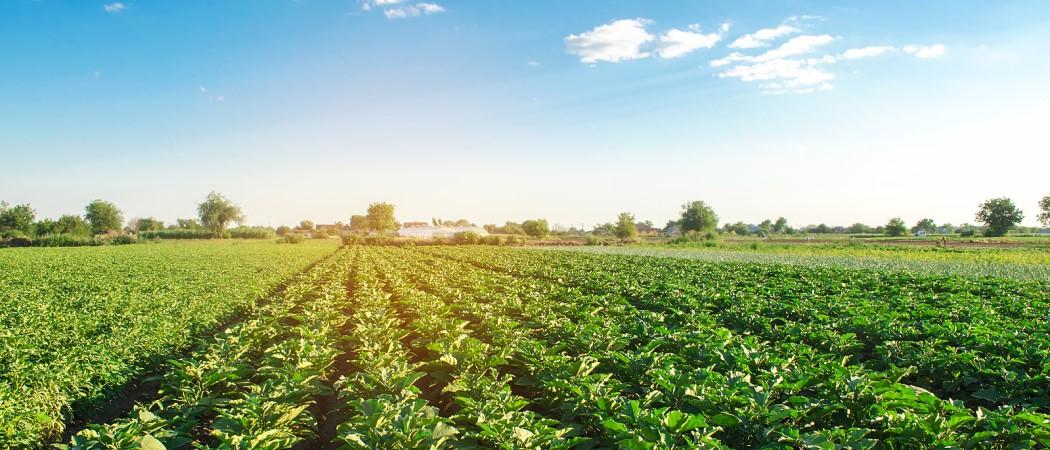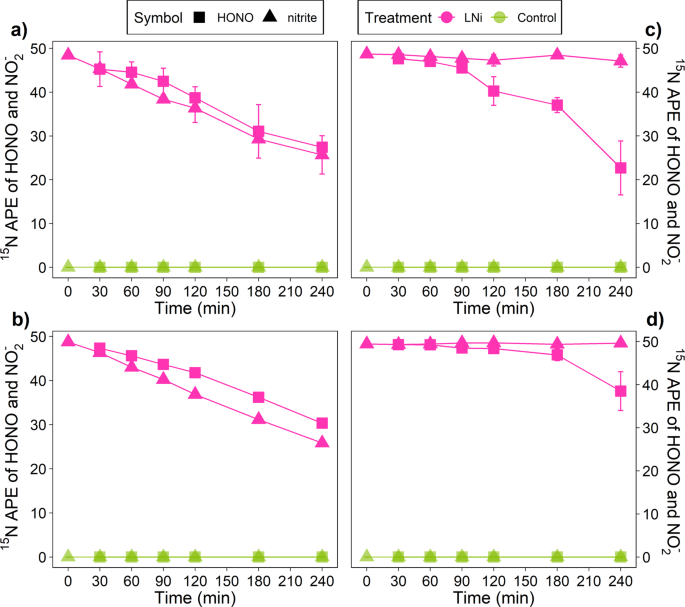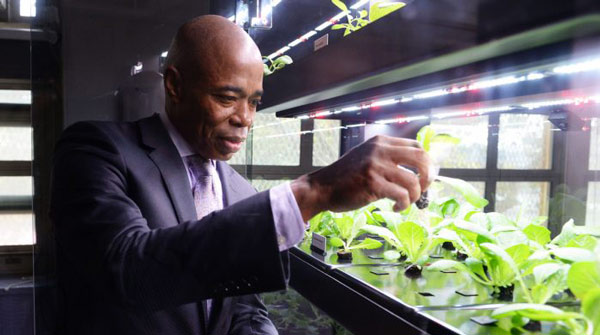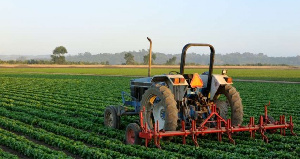 John LaRose Jr.
John LaRose Jr.
Topics: Soil Health, Agriculture Global, Sustainability, Research, Climate Change, World Population, Regenerative Agriculture, Weather,
Scientists zero in on the role of volcanoes in the demise of dinosaurs
Earth has experienced five major mass extinction events over the past 500 million years. Massive volcanic eruptions have been identified as the major driver of the environmental changes that precipitated ...
-
(0)
-
Bookmark
- Comments (0)
 John LaRose Jr.
John LaRose Jr.
Topics: Agriculture Global, Economics, Sustainability, GMO's, Research, Ag Europe, Genes /Genetics, World Hunger, Weather,
Ethics report brings EU closer to decision on gene editing in agriculture
Using genome editing technologies in plants could help the EU ensure food security and reduce the impact of current agriculture practice on the climate, according to new report by the European Group on Ethics in science and new technologies (EGE). Allowing gene editing for precision breeding would help the EU achieve goals stated in its Farm to Fork strategy, of reducing use of fertilisers by 30 per cent and turning 25% of agricultural land over to organic farming by 2030. “There is a need to ensure food security, provide renewable resources for fuel, feed and fibre, safeguard the retention of biodiversity and protect the environment,” the report says. “Current forms of agriculture contribute significantly to the anthropogenic climate crisis.” The ethicists also call for broader and more inclusive societal debate on genome editing, for better monitoring of regulatory and scientific developments in the field, and moves to establish a system of global governance of gene editing technologies. EGE looked at the impact of gene editing in humans, animals and plants, concluding that in agriculture, the EU should speed up its adoption for plant breeding, to keep up with international competition and support food production. Gene editing of plants is comparable to current breeding techniques that use radiation or chemicals to genetically manipulate seeds, or to what can be achieved by the natural, but laborious process of crossing different cultivars. According to the Euroseeds association, the regulation of genome editing that is comparable to conventional methods should be proportional to the risk - and light in touch. Petra Jorasch, manager of plant breeding innovation advocacy at Euroseeds, said without improvements in plant breeding, Farm to Fork will reduce agricultural productivity. “If you take [pesticides and fertilisers] from farmers, you need some kind of innovation to compensate,” she said. Catching up with the rest of the world Precision breeding of plants through gene editing cannot b...
-
(0)
-
Bookmark
- Comments (0)
 John LaRose Jr.
John LaRose Jr.
Topics: Soil Health, Precision AG , Agriculture Global, Sustainability, Research, Fertilizer,
Denitrification is the major nitrous acid production pathway in boreal agricultural soils
Microbial processes, particularly denitrification, are more important in driving nitrous acid production and emissions in aerobic soils than abiotic processes, according to 15N tracer and isotope pool dilution experiments in boreal agricultural soils.
-
(0)
-
Bookmark
- Comments (0)
 Nancy Kavazanjian
Nancy Kavazanjian
Topics: Livestock/Meat, Agriculture Global, Trade (Commodities),
Animals stranded on board 20 livestock ships waiting to pass through the jammed Suez Canal could starve and die if the situation lasts much longer, charity warns
There is a risk of "starvation, dehydration," and death for the animals stranded on the livestock ships stuck in the Suez Canal jam.
-
(0)
-
Bookmark
- Comments (0)
 John LaRose Jr.
John LaRose Jr.
Topics: Agriculture Global, Economics, Sustainability, World Hunger, Urban Farming, World Population,
The Future of Urban Agriculture …
foresight.arup.com/perspectives: “It is predicted that food production across the world will need to increase by around 25% by 2050. Coupled with growing urbanisation, restrictions in available agricultural land and climate change impacts, this leaves a large challenge to address.“It is estimated that 80% of all food will be consumed in cities by 2050, so future […]
-
(0)
-
Bookmark
- Comments (0)
 John LaRose Jr.
John LaRose Jr.
Topics: Agriculture Global, Economics, Research, Government / Policies, World Population, Coronavirus/COVID,
Survey to track impacts of coronavirus on Agribusinesses in Ghana begins - Ghanamma.com
Business News of Friday, 26 March 2021 Source: business24.com.gh 2021-03-26 The survey will also assess measures put in place by agribusinesses to mitigate the impacts of COVID The Ghana Statistical Service (GSS), in collaboration with the United Nations Development Programme (UNDP) and the German Agency for International Cooperation (GIZ), is conducting an Agribusiness Tracker Survey […]
-
(0)
-
Bookmark
- Comments (0)
 John LaRose Jr.
John LaRose Jr.
Topics: Soil Health, Agriculture Global, Sustainability, Research, Fertilizer,
Microbial consumption of mineral nitrogen promotes HONO emissions in agricultural soils
A new study indicates that microbial nitrate reduction is an important nitrous acid (HONO) production pathway in aerobic soils. This suggests that the terrestrial ecosystems favoring it could be hotspots ...
-
(0)
-
Bookmark
- Comments (0)
 John LaRose Jr.
John LaRose Jr.
Topics: Forestry, Agriculture Global, Sustainability, Crop Diseases, Research,
Deforestation, forest conversion and palm oil plantations linked to disease outbreaks
Deforestation, forest conversion and palm oil plantations linked to disease outbreaks, finds new study in Frontiers in Veterinary Science
-
(0)
-
Bookmark
- Comments (0)
 John LaRose Jr.
John LaRose Jr.
Topics: Agriculture US, Agriculture Global, Sustainability, Ag Innovation, World Population, Regenerative Agriculture, AgriBusiness, Ag Labor, Weather,
Impact of a second Dust Bowl would be felt worldwide
Catastrophic shock to US agriculture would deplete reserves, including those of other countries: Frontiers in Sustainable Food Systems.
-
(0)
-
Bookmark
- Comments (0)
 John LaRose Jr.
John LaRose Jr.
Topics: Livestock/Meat, Education U.S. NorthEast, Agriculture Global, Economics, Sustainability, Research, Cellular Meat,
Could coloring our steaks blue help reduce the world’s insatiable demand for meat?
By Prof Charles Spence, University of Oxford Image: SciePro/Shutterstock Blue has become an increasingly popular color in drinks and confectionary. Now, Prof Charles Spence of the University of Oxf…
-
(0)
-
Bookmark
- Comments (0)












